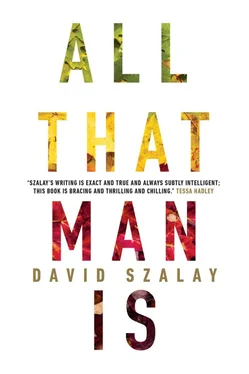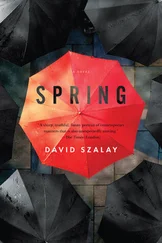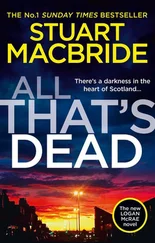‘I’m sorry,’ he says. ‘It was my fault.’
‘Yes, it was.’
He sits down in the wing chair, flops down into it, so that his legs swing up slightly. He sits there, panting.
‘How are you feeling?’ she asks.
He says, ‘Okay. A bit dizzy. I’ll be okay.’
‘You shouldn’t be doing anything,’ she says. ‘The doctor told me you shouldn’t do anything for a few days. You should have let me deal with the tray.’
‘I’ll be okay.’
She stands up and pours the tea.
Then they watch The Best Exotic Marigold Hotel .
He starts wheezily snoring about halfway through.
One always imagines that there will be some sort of serenity at the end. Some sort of serenity. Not just an awful sordid mess of shit and pain and tears. Some sort of serenity. Whatever that might mean. And what that might actually mean becomes problematic up close. Amemus eterna et non peritura . That would seem to be sound advice, if serenity is what one is after. The same problem, though — what is eterna ? What is eternal, in his world? Wherever he looks, from the loosening skin of his weak, old man’s hands — which somehow don’t seem to be his , since he does not think of himself as an old man — to the sun shedding white light on the flat landscape all around, wherever he looks, he sees only peritura . Only that which is transient.
Joanna has left. She had an earlyish plane and left just as the late dawn was lightening the sky over the poplars of Strada Provinciale 65, a field or two away. The taxi was outside, vapour spewing from its tailpipe. She had hauled her suitcase downstairs and in the entrance hall she had stopped for a moment and said to him, ‘Cordelia will be here this afternoon.’
A minute later he was alone, in the kitchen, trying not to succumb to an unexpected flood of emotion, with trembling hands spooning coffee into the percolator.
How little we understand about life as it is actually happening. The moments fly past, like trackside pylons seen from a train window.
The present, perpetually slipping away.
Peritura .
He sits in the wing chair with his iPad.
Tap.
Tap. Tap.
Emails. No new emails, other than the spam and semi-spam that never stops.
He still hasn’t written to Simon about his poem. He will do that now. First he has another look at it.
The portrait shows this — his eyes fixed elsewhere
,
Mehmet the Conqueror holds a rose
To the Turkic scimitar of his nose
.
The engrossing necessities of money and war
,
The wise politician’s precautionary
Fratricides, the apt play of power —
All proper activities in his sphere
,
And he excelled at them all. So why the flower?
A nod, perhaps, to something less worldly;
Not beauty, I think, whatever that is
,
Not love, not ‘nature’
,
Not Allah, by that or any other name —
Just a moment’s immersion in the texture
Of existence, the eternal passing of time
.
That final phrase. It didn’t make much of an impression on him last week.
He stands up and fondles the radiator, fondles its warmth with his stiff hands.
The passing of time. That is what is eternal, that is what has no end. And it shows itself only in the effect it has on everything else, so that everything else embodies, in its own impermanence , the one thing that never ends.
Which would seem to be an extraordinary paradox.
Claudia says, ‘Good morning, Signor Parson.’
Startled, he turns. ‘Oh, Claudia. Hello. How are you?’
‘I’m okay, Signor Parson,’ she says, not trying very hard to hide the fact that she is tired and fed up. She also has problems with her joints in this weather. They have talked about it.
‘Where you like me to start?’ she asks.
‘The kitchen?’ he suggests. ‘Or upstairs? I don’t mind.’
He is trying to hold onto the feeling he had, a moment ago, of everything as the embodiment of something endless and eternal, of the eternal passing of time. For a moment he had felt it. Felt it.
‘Okay,’ Claudia says. ‘I start upstairs, okay?’
And that through its very impermanence.
Only something as paradoxical as that, he thinks, has any hope of…Of what?
He says, ‘Fine. Thank you, Claudia.’
He is still standing at the window.
Of helping.
For a moment he had felt it, and it had helped.
—
Cordelia arrives at four o’clock, just as it is getting dark. She is forty-three now. It seems incredible. ‘Hello, Dad,’ she says, when she has dismissed the taxi. He is waiting in the doorway, waiting to help her with her suitcase, which she does not let him do. In the sitting room they drink wine. He wishes now that he’d saved the fine Barbaresco to share with her. He tells her about the accident, what he can remember, that he was at Pomposa abbey. He thanks her, again, for coming to stay.
When he thanks her she just smiles, and stands up and looks at the books on the shelves. She is tall like her mother. ‘I’m reading Clark’s Sleepwalkers ,’ he tells her, from the wing chair.
‘Oh, yeah? Interesting?’
‘Very,’ he says.
‘Tell me about it.’
He tries to explain, what he understands of it — how Europe stumbled into this near-death experience — and then says, when it’s obvious he isn’t making much sense, ‘I haven’t finished it, of course. I’m less than halfway through.’
‘M-hm.’
With donnish interest, he asks, ‘What are you reading?’
‘Bring Up the Bodies ,’ she says. ‘Finally.’
‘She’s good on the politics,’ he tells her, like someone who would know.
‘I’m enjoying it,’ she says.
Then she starts to talk about something else: ‘How was it with Mum?’
The question is just perceptibly loaded.
‘Fine,’ he says vaguely. And then, with more emphasis, ‘It was very sweet of her to come. She was supposed to be in New York or something.’
‘I know.’
Somehow too solemnly, he says, ‘And thank you , Cordelia, as well. I know how much you’ve got on…’
‘That’s about the fourth time you’ve thanked me,’ she says. She is smiling. ‘You can stop now. I feel fully thanked.’
‘Okay,’ he laughs, as always hugely enjoying her manner.
He is somewhat in awe of her.
‘So it was fine with Mum?’ she asks, pressing on with that.
Joanna must have spoken to her, he thinks, phoned her from the airport and told her something.
‘It was fine,’ he says. And then again, trying not to sound so threatened, ‘It was fine.’
There is a short silence.
To end it, he asks after Simon. Says he read the poem she sent.
‘And?’ she wants to know. ‘What did you think?’
‘I was impressed,’ he says, and Cordelia looks pleased. That was his aim — to please her. He says, ‘He and his friend were out here in the spring, of course.’
‘Yes,’ Cordelia says, ‘I know.’
‘What was his friend’s name again?’
‘Ferdinand.’
‘That’s it. A very entertaining young man.’
‘Yes.’ The proposition seems to make her uneasy, slightly. ‘I suppose.’
‘I liked him.’ He is sort of staring off into the middle distance when he says that. ‘We had some very nice talks,’ he says, smiling at her.
‘You and Ferdinand?’
‘And Simon, of course.’
He asks, after a few moments, ‘Is, er, Ferdinand up at Oxford too?’ There is something strange and deliberate, she thinks, about the way he says the name. And, actually, about the way he keeps talking about Ferdinand.
Читать дальше












